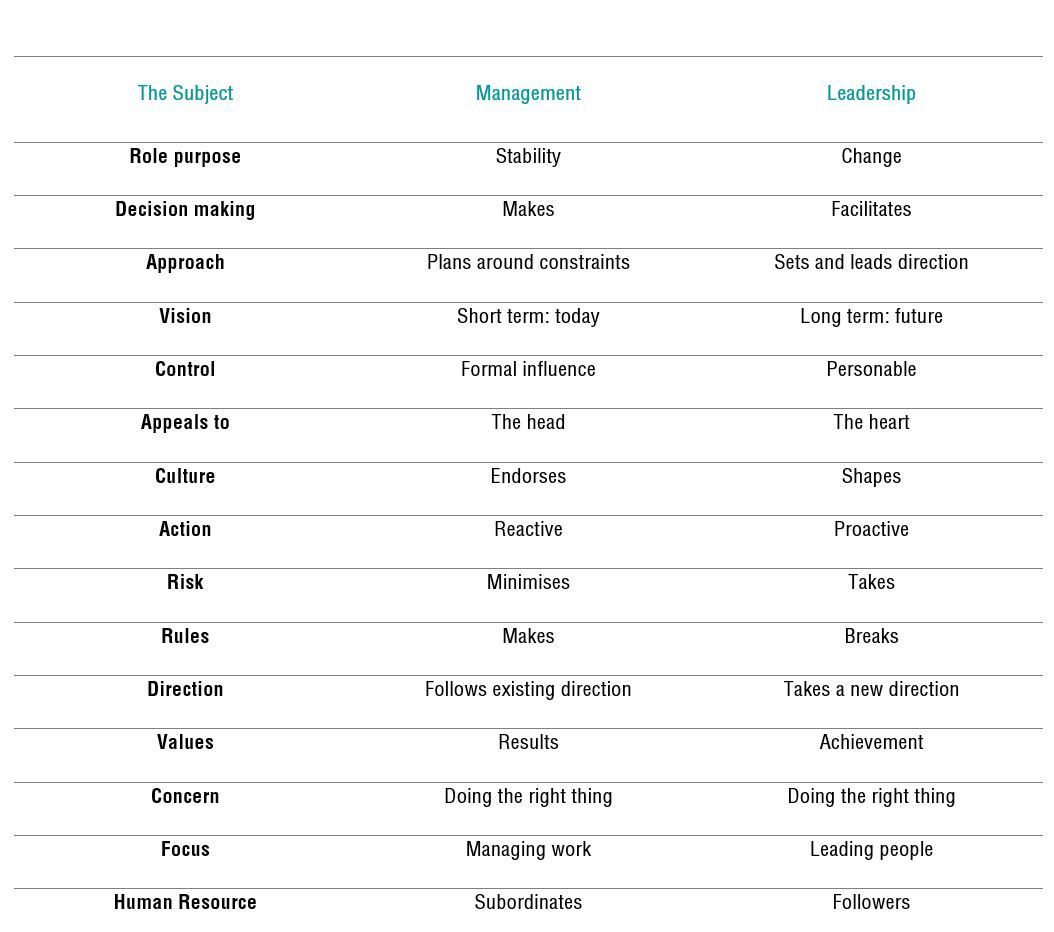Management versus Leadership: What's the difference?
Management and Leadership seem to go hand in hand. Some people even assume they are one in the same. But this isn’t necessarily the case. Management is often less productive and influential without leadership. Leadership is about inspiring, but it also cannot impact businesses and employees to its full potential without the implementation of management. In this blog I will break down the differences between management and leadership and outline the importance of becoming a leader, not just a manager.
In Hamza Khan’s TEDx talk ‘Stop Managing, Start Leading,’ he mentions the idea of the management paradox. The paradox understands that growing organisations require management, but people seldom enjoy being managed. Here are some differences laid out in a simplified table – you’ll be able to see why people dislike getting managed only.

Figure 1 This table was sourced from educational-business-articles.com (some items have been reworded).
As you can see, all dichotomies except for the subject of ‘concern’ are opposites. Perhaps this is where the phrase ‘opposites attract’ was coined for it is detrimental that managers/leaders fulfil both spectrums on this table within a business. Together, they complement each other but separately they may cause more damage than good.
More often than not there is the issue of management occurring without leadership. There are several issues with sole management. Mostly, it is outdated and relies heavily on controlling employees to the point of holding them back from their potential. Pure management tries to play by every rule and it expects everyone to follow the same rules, even if that rule doesn’t work for them. It seems good enough, it’s logical, it has kept businesses running, but without the passion of leadership, the sole management mindset often makes employees irritable and unsatisfied in their jobs – increasingly so as millennials enter the workforce and realise that there are other ways to be productive outside the 9 to 5 guidelines.

In the case of leaders without management mentality, a business or leader may not achieve results and could potentially be taken advantage of by their employees. Leadership also requires risk, innovation and change, which are all things subject to some experimentation and autonomy. This means that employees who prefer set tasks may become lost. However, all businesses need to grow and change to be sustained. And as a leader, we can work with a lost employee and guide them in a way that suits them best.
Leaders aren’t always in management positions, they don’t even have to be high up within a business. If you’re in an organisation with a leader that isn’t a manager, count your blessings. But when you are in a position of management, it will benefit you, your employees and your organisation to adopt the view of a manager as well as the view of a leader. Leadership relies on trust and faith. Employees will want to work for someone who inspires them and motivates them. They’ll want to work for someone they can aspire to and request guidance from. Be a good manager by being a good leader too.






















